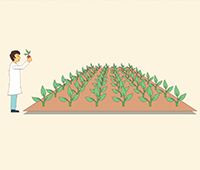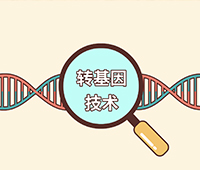经过评估,转基因小组得出结论,就对人类和动物健康及环境的潜在影响而言,转基因玉米MON 87419与其传统对应品种和经过测试的非转基因玉米品种一样安全。部分原文报道如下:
Genetically modified maize MON 87419 was developed to confer tolerance to dicamba- and glufosinate-based herbicides. These properties were achieved by introducing the dmo and pat expression cassettes. The molecular characterisation data and bioinformatic analyses do not identify issues requiring food/feed safety assessment. None of the identified differences in the agronomic/phenotypic and compositional characteristics tested between maize MON 87419 and its conventional counterpart needed further assessment, except for the levels of arginine and protein in grains which did not raise safety and nutritional concerns. The GMO Panel does not identify safety concerns regarding the toxicity and allergenicity of the dicamba mono-oxygenase (DMO) and phosphinothricin N-acetyltransferase (PAT) proteins as expressed in maize MON 87419. The GMO Panel finds no evidence that the genetic modification impacts the overall safety of maize MON 87419. In the context of this application, the consumption of food and feed from maize MON 87419 does not represent a nutritional concern in humans and animals. The GMO Panel concludes that maize MON 87419 is as safe as the conventional counterpart and non-GM maize varieties tested, and no post-market monitoring of food/feed is considered necessary. In the case of accidental release of viable maize MON 87419 grains into the environment, this would not raise environmental safety concerns. The post-market environmental monitoring plan and reporting intervals are in line with the intended uses of maize MON 87419. The GMO Panel concludes that maize MON 87419 is as safe as its conventional counterpart and the tested non-GM maize varieties with respect to potential effects on human and animal health and the environment.
本文由食品伙伴网食品资讯中心编辑,供网友参考,有任何疑问,请联系news@foodmate.net。







